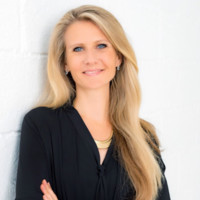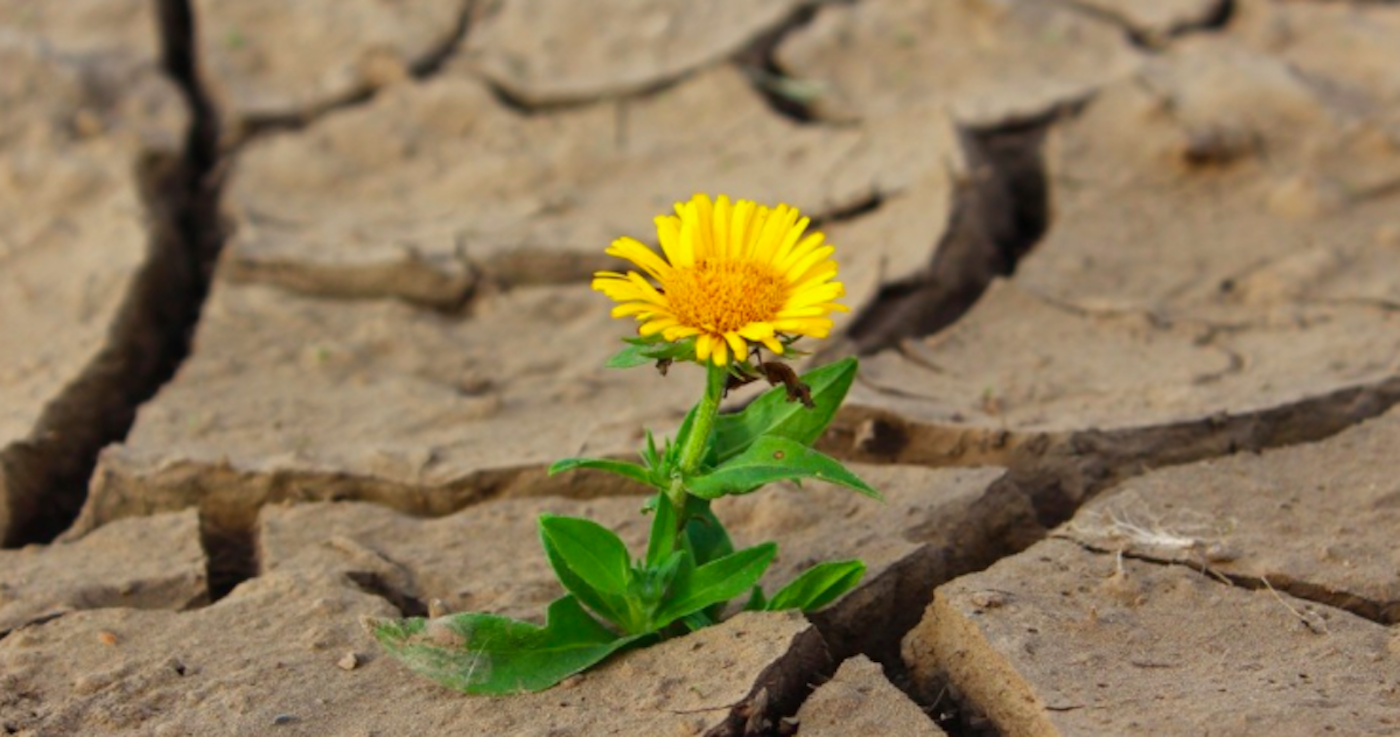As I sat in the airport waiting for my flight to the UK last August, a sadness washed over me. I had just said goodbye to my best friend while she was getting ready to leave Dubai. For good. While thinking about her, I realised she was my 16th friend to leave Dubai in 18 months. And the last of my closest friends to venture on to pastures new. Recognising I would be returning to an “empty” Dubai, I felt a pain in my chest. The pang of loneliness.
When I returned to Dubai, I continued to focus on work. There were weeks where the only people I would speak to were my clients. Most of my free time was spent creating content. Connecting with people on social media. Listening to audiobooks or watching YouTube videos.
After 3 months, I realised I was spending a lot of time alone. And underneath all the distractions there was a feeling of loneliness.
I reached out to someone I’d clicked with at a networking event the previous year. (Who also just so happened to be a mindfulness practitioner.) Within a few days, I was sat in her apartment having a cup of tea. We spoke for nearly 4 hours. It was that cup of tea which marked the start of my “loneliness recovery” journey. Looking for my tribe. Joining communities. Building new relationships. Connecting on and offline. And most importantly – connecting with myself.
What is loneliness and why do we feel it?
Evolutionary psychologists believe loneliness evolved to motivate us to form social relationships. Relationships which in hunter-gatherer days would increase our chances of survival. Lack of social relationships would leave us vulnerable and at higher risk of being ostracised from the group. Particularly when food and resources were scarce. This would almost certainly lead to death. As such loneliness can then be viewed as an emotional pain, much like physical pain, there to tell us something is wrong. A warning that unless we become more deeply engaged in our societies, we will die.
Recent studies have indicated our whole physiology is wired for connection. When we connect with others, we’re rewarded with a biochemical cocktail of endorphins, serotonin, dopamine and oxytocin. A neurotransmitter high that feels so good it motivates us to connect more. And unlike an espresso martini, it’s a cocktail research shows we need regularly. Low levels of these chemicals have been associated with pain, stress, addiction, depression, sleep disorders and other mental and physical health issues. Health insurance company Cigna said after their 2017 study on loneliness “loneliness is as harmful to one’s health as smoking 15 cigarettes a day.” Another study from the American Psychological Association found lonely people are at greater risk of premature death.
It seems then almost paradoxical in today’s world, where we are more connected than ever – many people still feel the pang of loneliness. In Cigna’s study, 54% of people expressed they felt lonely in various ways, while another study showed 76% of people were lonely. It could be concluded then it’s not the number of connections which matters. It’s the quality.
There’s also a difference between being alone and feeling alone. Physical isolation doesn’t automatically provoke loneliness. And conversely, many of us have still felt the pang of loneliness in the company of others. Including friends and family. Many of my married clients, some with children, have expressed they still feel a sense of profound loneliness at times.
Loneliness can then be defined as a subjective perception or feeling of disconnection to those around us. Stemming from a perceived lack of:
- Support (professional, emotional, physical)
- Human touch
- Someone to confide in
- Romantic or platonic love
- Acceptance or “fitting in”
- Involvement
- Intimacy
- Feeling understood / someone who “gets” us
- A sense of belonging
How lonely are we really?
There has been some debate recently as to how lonely we really are. Some say loneliness is becoming an epidemic. While others say, social isolation (spending more time and/or living alone) is becoming an epidemic while loneliness isn’t. However, there might be an explanation for this.
“It’s possible that socially isolated people are turning to social media to treat their feelings of loneliness. This could make them feel less lonely in the short run, but these connections can be more about quantity than quality. They aren’t necessarily the people we would get together with in person or turn to when we need help.” Sara Konrath – Assistant Professor of Philanthropic Studies, IUPUI said in her article on loneliness.
Of course, not all connections made online are surface level. One of the best friends I have in my life right now is someone I met through LinkedIn. She lives thousands of miles away and we’ve never physically met. But we speak almost every day. I turn to her and confide in her when in need. And vice versa.
The key here is balance. Too much of anything is generally not good for us. Whether that’s physical isolation. Spending too much time behind a screen. Socialising with the ‘wrong’ people. Or spending too long in a relationship we know isn’t right for us. Social isolation and emotional isolation in excess have equally harmful effects on our health.
We could be feeling less lonely because we’re meeting our need for connection through other means. Social media, food, sex, alcohol, drugs, video games, Netflix, work can all quench our thirst for that biochemical cocktail we seek. In fact, in his famous TED Talk “Everything You Think You Know About Addiction is Wrong”, British journalist Johann Hari proposes addiction is a symptom of an unfulfilled need for connection. Suggesting addiction can be cured by connection.
But what if we’re also not feeling lonely because we won’t allow ourselves to FEEL our loneliness? What if we’re simply distracting ourselves from the pain of loneliness?
Ostrich Syndrome
I have a friend who claims he is never lonely. When asked about how he spends his weekends, he said the moment he wakes up, he’s on his phone. Checking his stocks and social media accounts. When he’s done doing that, he will ring all of his friends. Fill his day with coffees, barbecues and bars. Until it’s time for bed. When I asked him what would happen if he didn’t do these things, he said, “I’ve tried it. I got bored. And lonely.”
There is a difference between boredom and loneliness. Boredom is the perceived lack of activity. In a recent video, trauma-informed coach Mastin Kipp said inactivity is perceived as an enemy to our reptilian brain. Because inactivity (or immobilisation) increases our chances of being seen (and attacked) by either a predator or an enemy. The feeling of boredom motivates us to move. Loneliness, on the other hand, is the perceived lack of someone. Both can incite distraction. In fact, any emotion we feel uncomfortable sitting with can. But if we are distracting ourselves because we’re lonely – how do we overcome it?
Individually, as with any form of recovery, the first step is admission.
Many of us don’t want to admit we’re lonely. To others or ourselves. Nor do we want to admit that instead of dealing with our loneliness we’re head-deep in distraction. Because admitting either would mean admitting we’re weak. Flawed. Imperfect. Abnormal in some way. We fear feeling lonely and weak. And we fear being seen as lonely and weak. This then causes us to be ashamed of our loneliness. I’ve had several C-suite clients admit they were lonely. The perceived lack of support impacting their stress levels and ultimately their performance. But it was the shame of their loneliness which stopped them from reaching out to others. “I’m a 58-year-old CEO. I can’t reach out for support and be seen as weak. I could lose my job!”
And here we reach the crux of the matter. The root cause of our loneliness.
Fear. And shame.
We want relationships. But the shame of our short-comings and/or wrongdoings stops us from being our true selves. We keep people at a distance in case they find out who we really are. Combine this with the fears of being imperfect. Unlikeable. Unlovable. Being Rejected. Ridiculed. The fear of people not being who we need them to be so we get to feel good about ourselves. We hide behind our walls. Whether that’s an apartment wall. The gym wall. The office wall. A computer screen. A mobile phone. A mask of who we think we need to be instead of who we are. A wall built to protect us. But a wall that keeps out the very thing we want. Connection.
To overcome loneliness, the first step is to take down the wall. To remove all the layers of fear, judgment, guilt and shame which keep us stuck. Replacing the wall with healthy boundaries instead.
It requires courage to take down the wall. Nobody wants to be vulnerable. But this is the other side of loneliness. Working on ourselves individually is only part of the equation. Collectively we need to actively stop shaming each other. To stop tearing each other down just so we can feel better about our own fear and shame. Because if we did that we wouldn’t need the courage to be vulnerable. Because without the threat of shame we wouldn’t need to be vulnerable. We could just simply be. Sharing who we are, what we’ve done, what we’ve been through without being shamed. We could be free to be ourselves.
Admitting our loneliness means feeling our loneliness, and embracing we’re human. Imperfect, flawed, hurt, insecure, scared, sometimes irrational and wonderfully magnificent human. Once we begin to embrace our imperfections and our magnificence we start our journey to authentic living and connection.
Succeeding in our dreams and goals is important. We weren’t put on this planet to sit in front of Netflix all day. Until we are real about who we are. How we feel. What we go through. Until we have the courage to share our stories and respect others for sharing theirs. We will always live in a shallow world of shallow relationships. And miss out on the connection and love we all seek.


